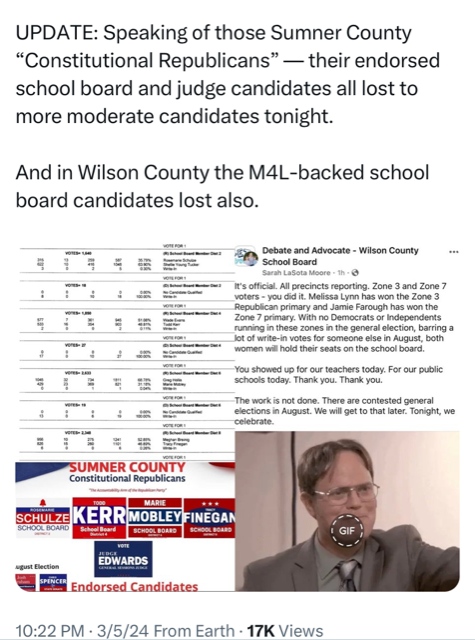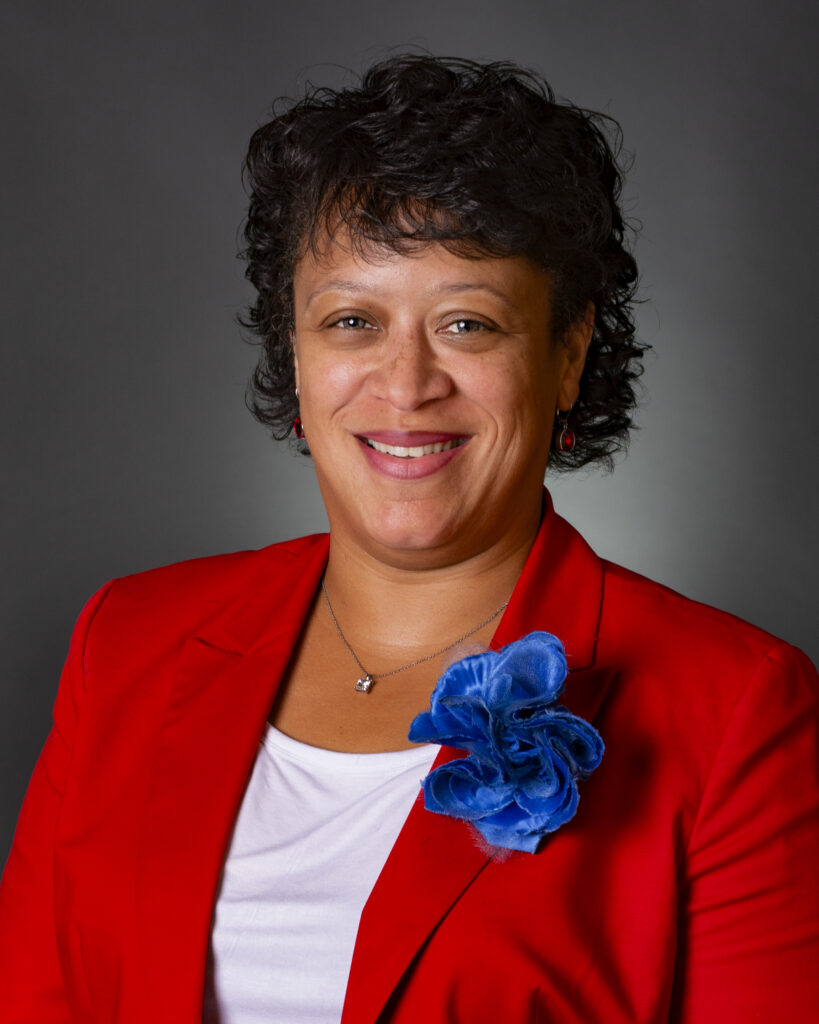Sumner County voters reject slate of school board candidates focused on banning books, firing director of schools
In the Republican primary last night, voters in Sumner County soundly rejected a slate of candidates focused on banning books in school libraries.
The Sumner County Constitutional Republicans (SCCR) fielded a slate of candidates in the GOP primary for School Board. All SCCR-backed candidates lost their races in a clean sweep for candidates supportive of investment in public schools.

Among the group of SCCR candidates, there had been discussion of removing books from school libraries and mention of an effort to fire Director of Schools Scott Langford if the group gained a majority.
Instead, in a voter turnout that exceeded the county’s typical average turnout, Sumner Countians rejected SCCR in every district.







